
Edge Computing Group
Our lab develops inventive solutions that bring computation closer to the source, going beyond the limitations of cloud services, costly hardware, and remote deployment. Our technologies are applied across diverse areas including digital health, agricultural sciences, and disaster-resilient transportation.
Based at the Research & Development Center of the University of Puerto Rico at Mayagüez
Latest News & Updates
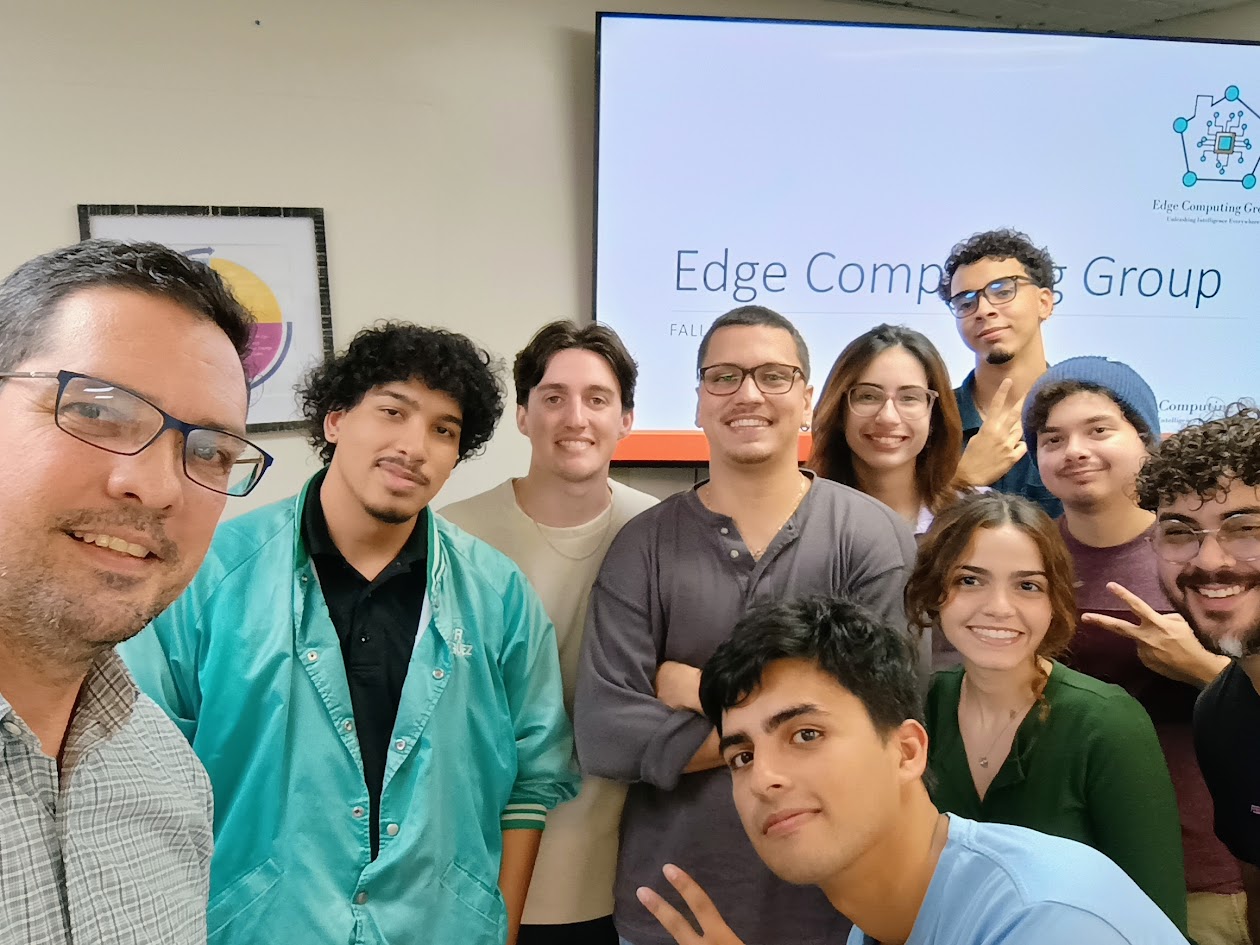
Fall 2025 Lab Team Announced
New members join our edge computing research initiatives
Excited to welcome a new semester with both familiar faces and new members joining the...
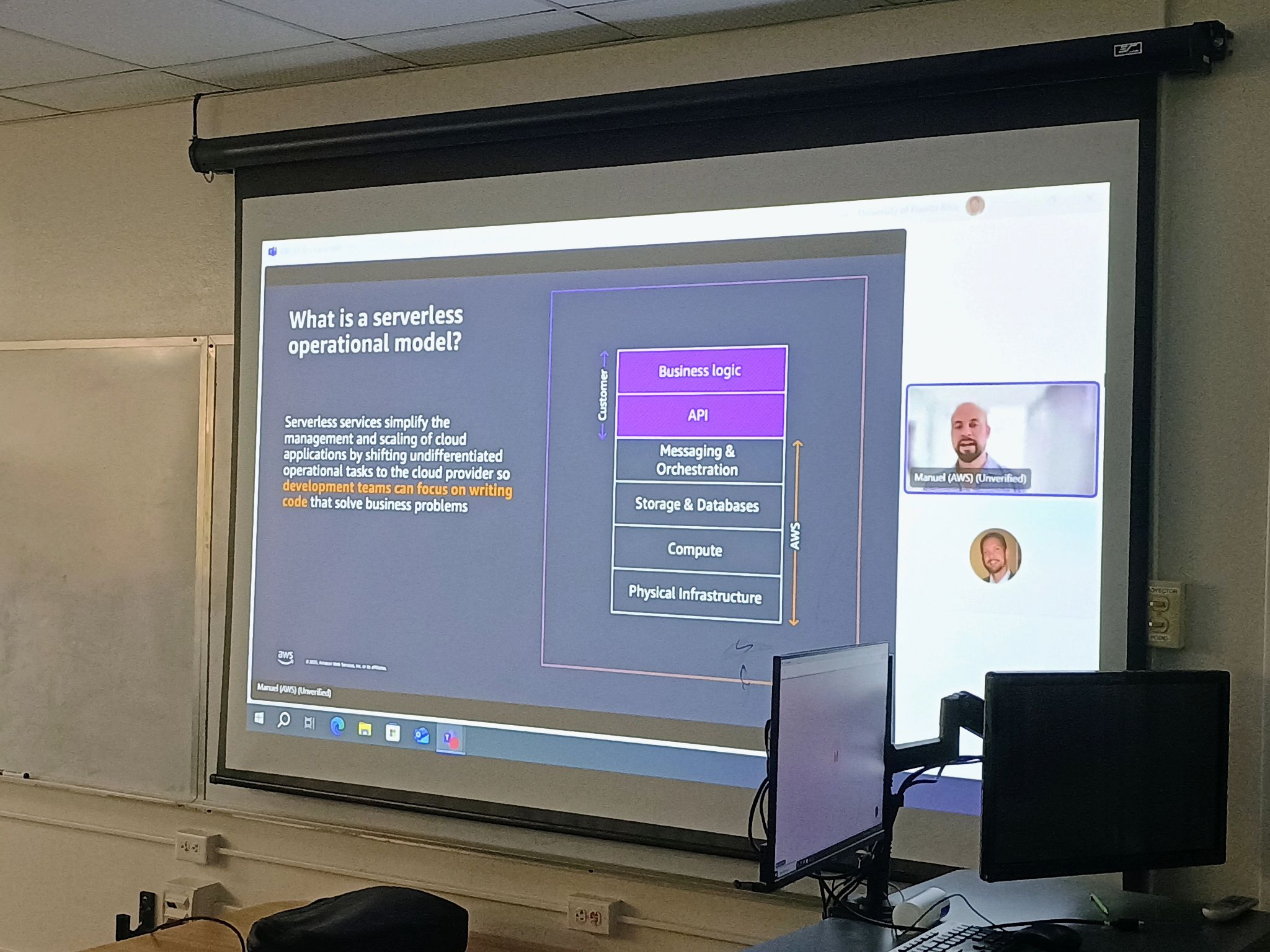
AWS Guest Lecture: Manuel Ortiz Bey
Industry insights for Cloud Computing Infrastructure at UPRM
April 14, 2025 — A huge thank you to Manuel Ortiz Bey, Senior Solutions Architect...
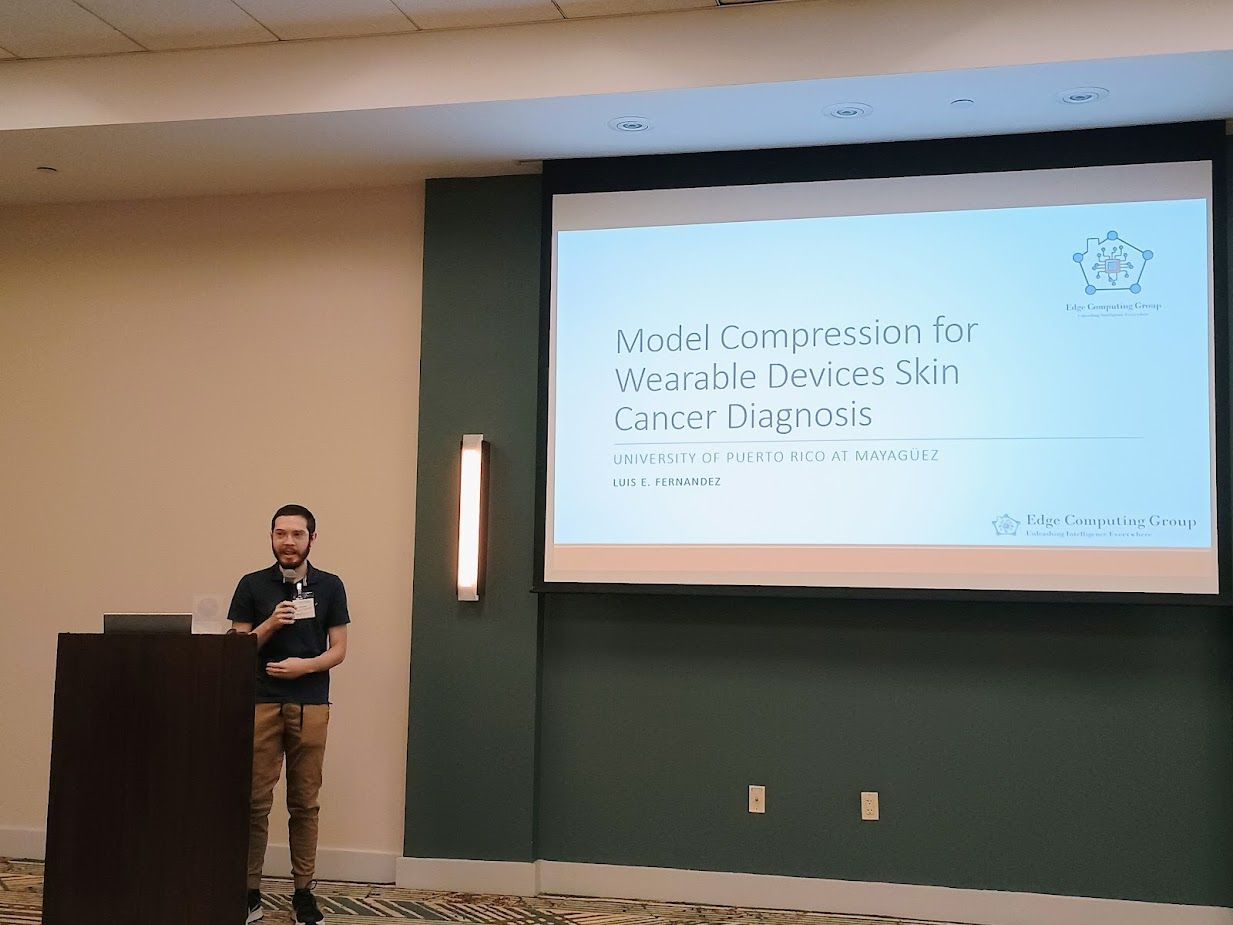
ECG Students Present at ISICN 2025
Undergraduate researchers showcase ML model compression for healthcare applications
March 17–19, 2025 — Last week, we had a proud moment for the Edge Computing...
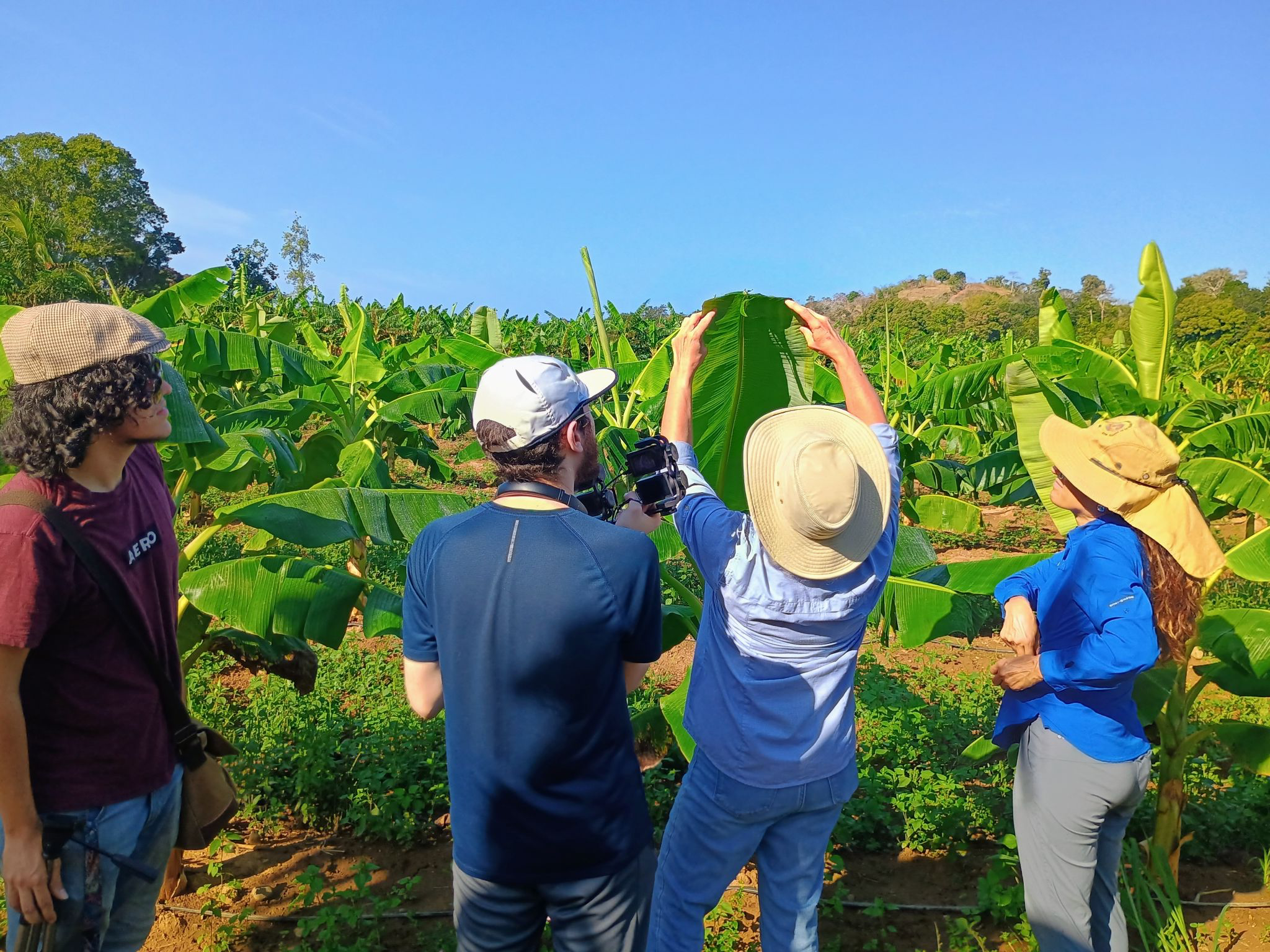
Bringing Technology to Agriculture: Supporting Sigatoka Disease Research
Spectral imaging and edge computing to aid early detection in plantains
March 2025 — 🌱 Bringing Technology to Agriculture: Supporting Sigatoka Disease Research 🌱
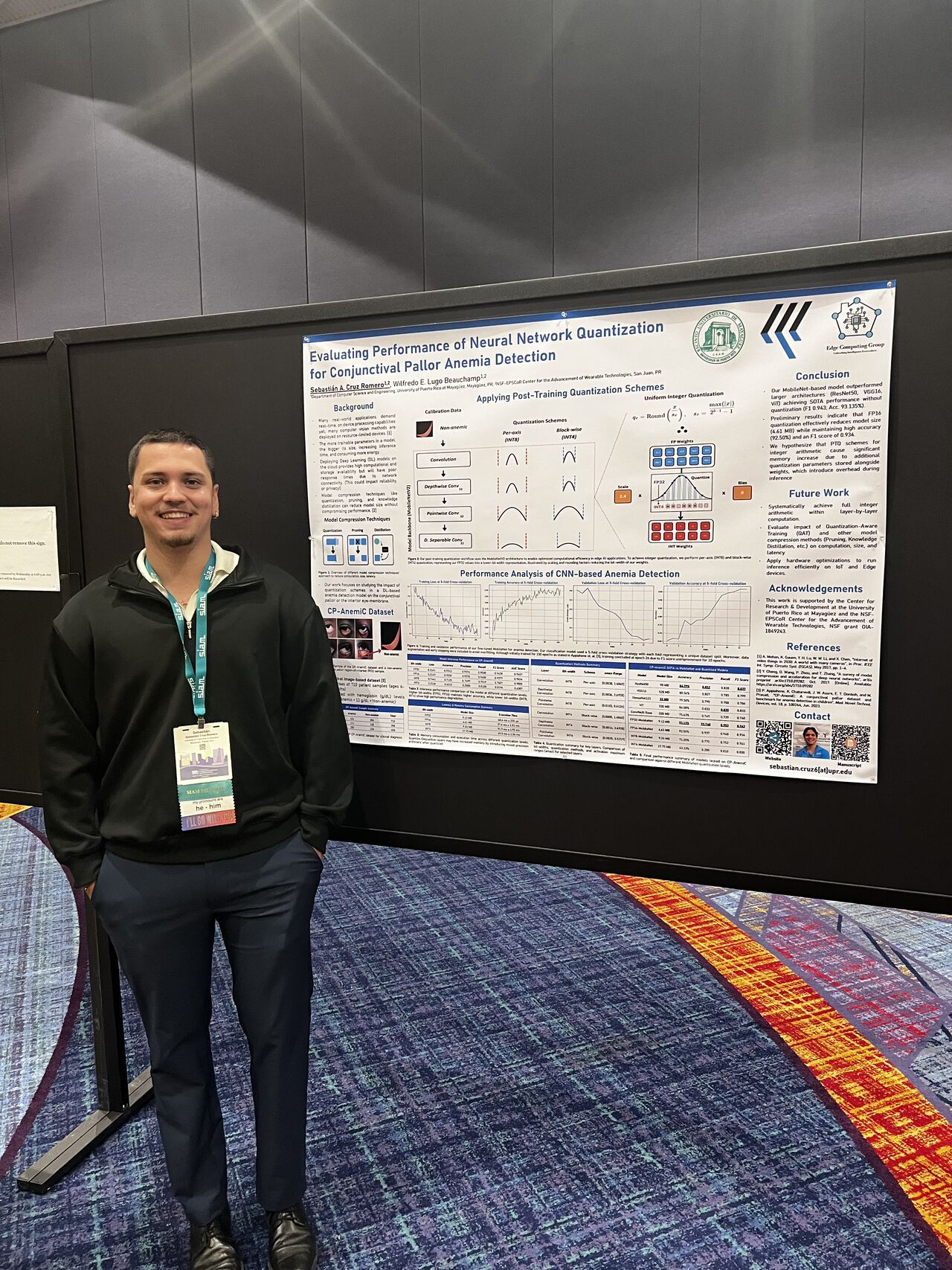
ECG Student Presents at SIAM CSE 2025
Evaluating neural network quantization for conjunctival pallor anemia detection
March 3–7, 2025 — We’re proud to share that one of our undergraduate researchers presented...
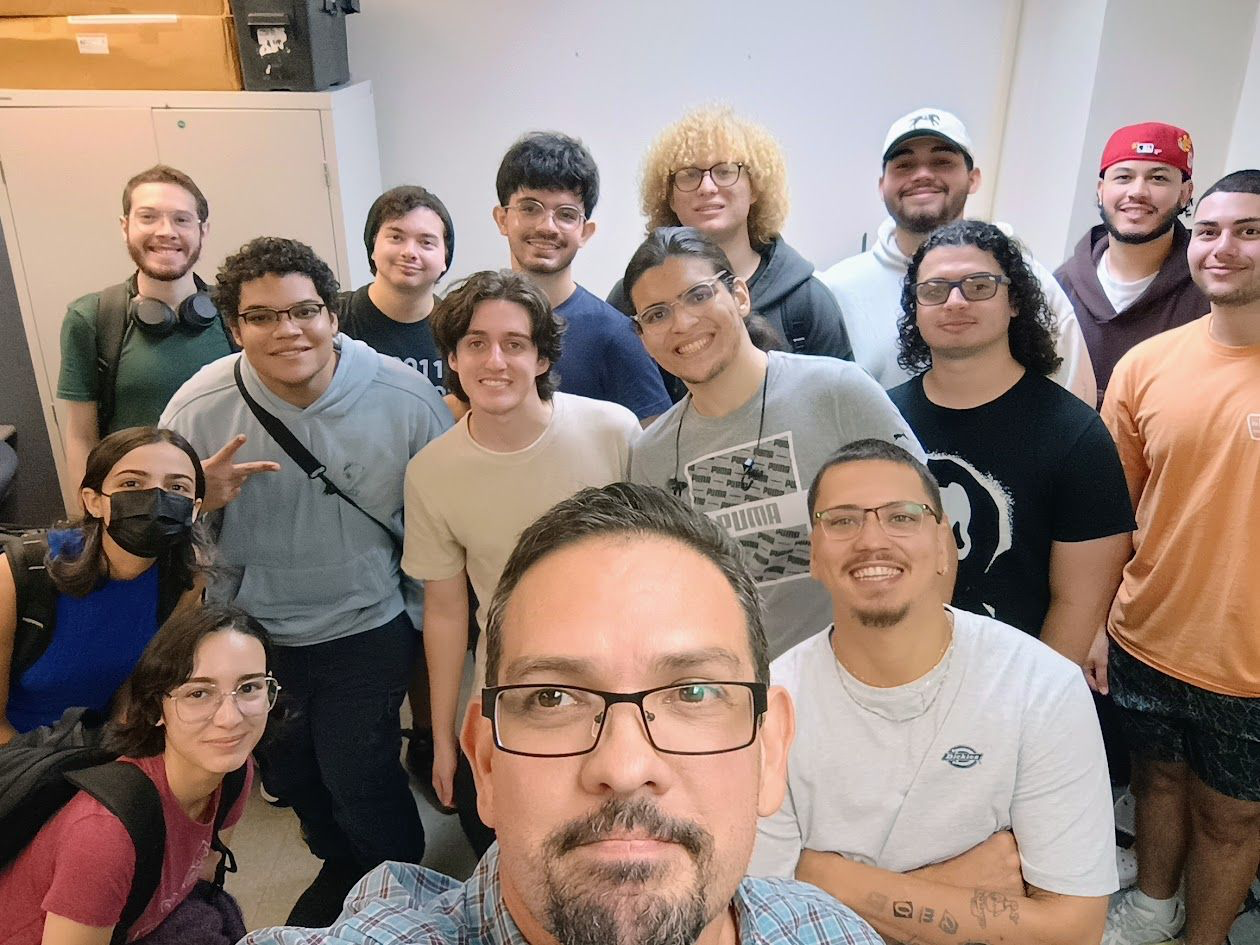
Spring 2025 Lab Team Announced
New members join our edge computing research initiatives
We’re excited to announce our Spring 2025 lab team! This semester brings together passionate students...
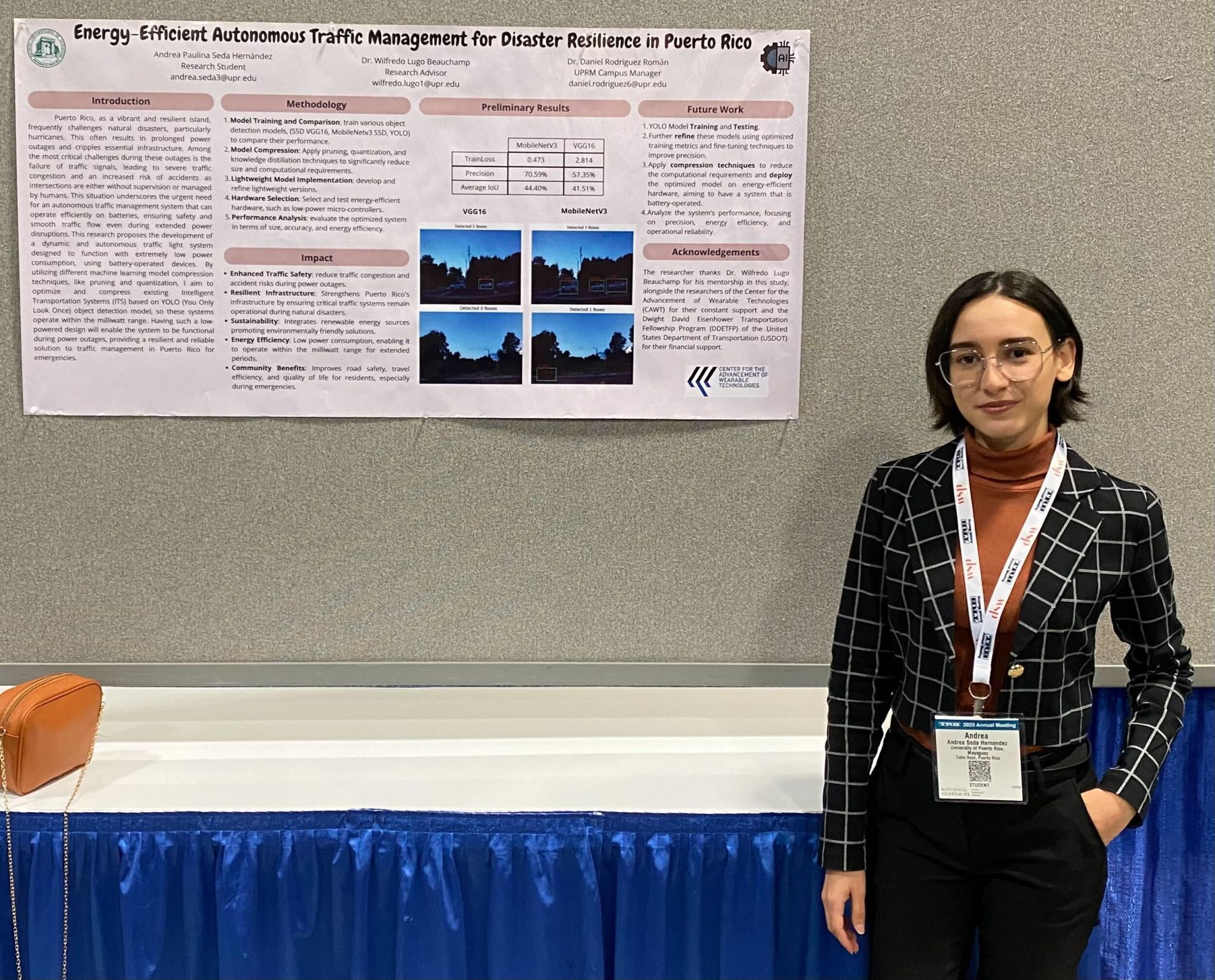
Andrea's Research on Disaster Resilience
Edge computing solutions for emergency response systems
Andrea’s groundbreaking research focuses on developing edge computing solutions for disaster resilience and emergency response...
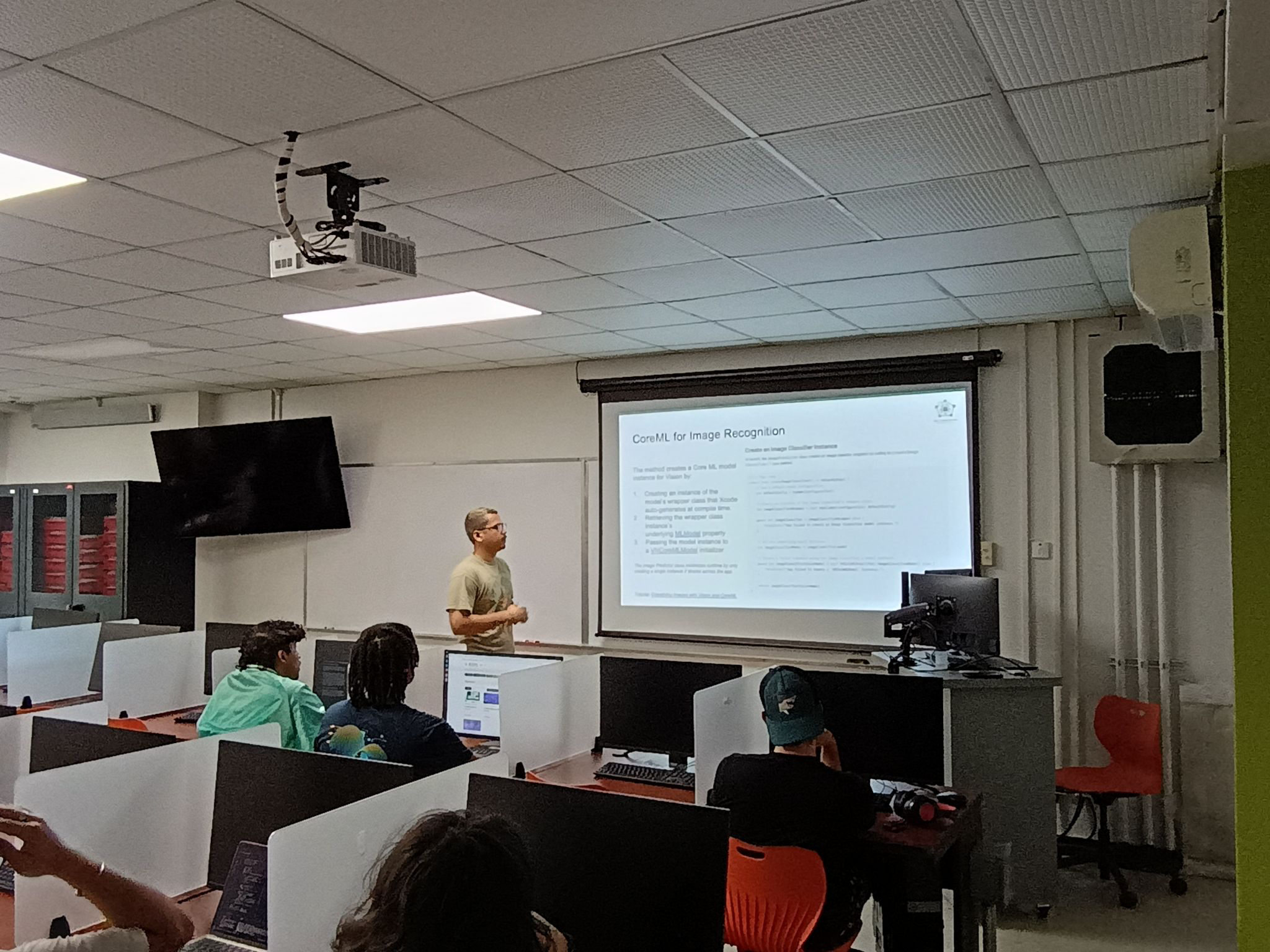
Sebastian's CoreML Presentation
Apple's machine learning framework for edge applications
Sebastian presented an insightful overview of Apple’s CoreML framework and its applications in edge computing....
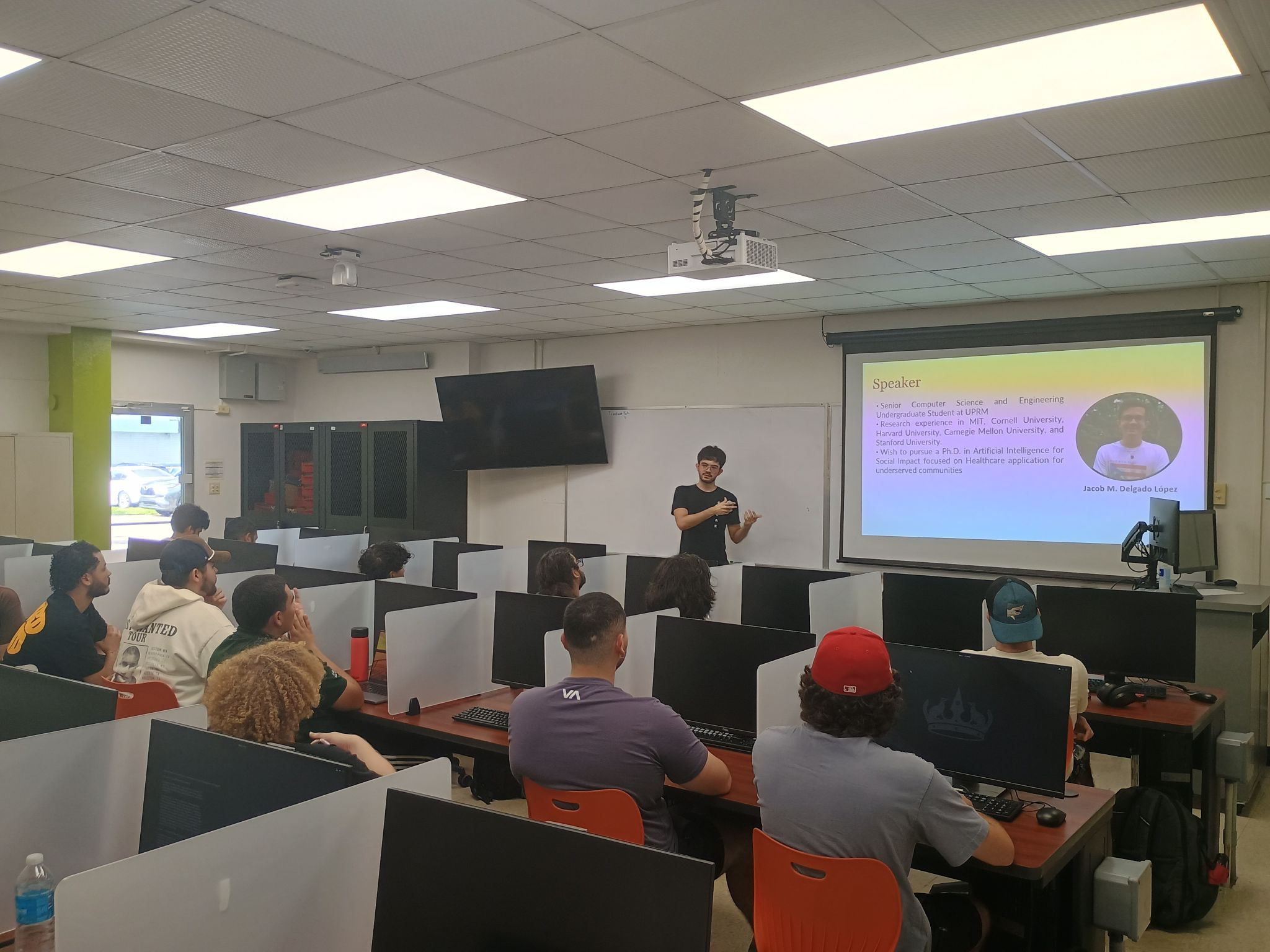
Jacob's TensorRT Lecture Series
Deep learning optimization for edge devices
Jacob delivered an excellent lecture series on TensorRT optimization for edge computing applications. The series...

Fall 2025 Lab Team Announced
New members join our edge computing research initiatives
Excited to welcome a new semester with both familiar faces and new members joining the...

AWS Guest Lecture: Manuel Ortiz Bey
Industry insights for Cloud Computing Infrastructure at UPRM
April 14, 2025 — A huge thank you to Manuel Ortiz Bey, Senior Solutions Architect...

ECG Students Present at ISICN 2025
Undergraduate researchers showcase ML model compression for healthcare applications
March 17–19, 2025 — Last week, we had a proud moment for the Edge Computing...

Bringing Technology to Agriculture: Supporting Sigatoka Disease Research
Spectral imaging and edge computing to aid early detection in plantains
March 2025 — 🌱 Bringing Technology to Agriculture: Supporting Sigatoka Disease Research 🌱

ECG Student Presents at SIAM CSE 2025
Evaluating neural network quantization for conjunctival pallor anemia detection
March 3–7, 2025 — We’re proud to share that one of our undergraduate researchers presented...
Our "Makerspace" Approach
At the Edge Computing Group, we believe groundbreaking innovation starts with bold ideas. We invite undergraduate and graduate students alike to bring their concepts to life in a collaborative, resource-rich environment, supported by peer mentorship and hands-on experimentation.
If you are interested in joining our team or simply curious about our work, please contact us at wilfredo.lugo1@upr.edu

Our Supporters






